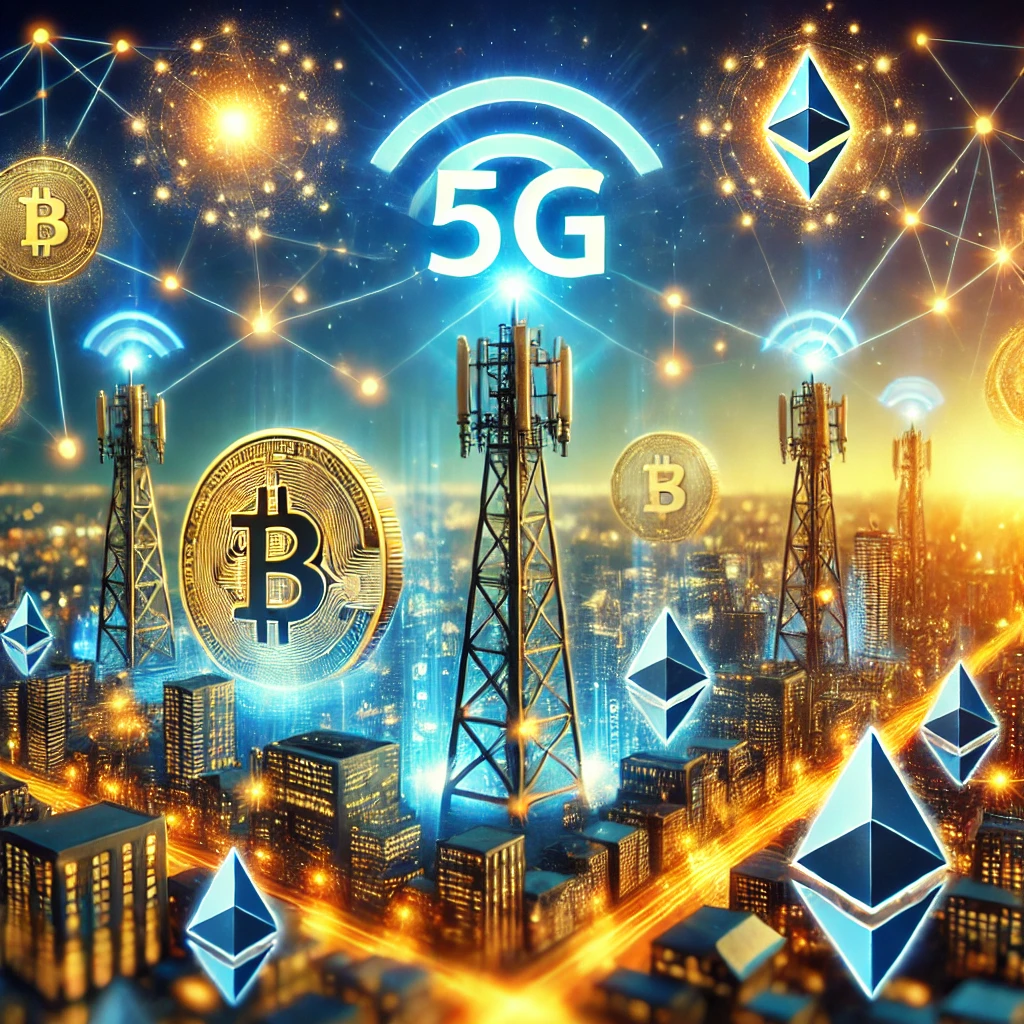Table of Contents
Introduction
The advent of 5G technology is heralding a new era of connectivity, promising unprecedented speed, lower latency, and enhanced scalability. For the cryptocurrency ecosystem—an industry inherently tied to the digital realm—5G has the potential to redefine how transactions are conducted. This article explores how 5G technology will shape the future of cryptocurrency transactions, its benefits, challenges, and what lies ahead for the industry.
The Rise of 5G Technology: A Brief Overview
Understanding 5G: Speed, Connectivity, and Scalability
5G, the fifth generation of wireless technology, is designed to deliver data at speeds up to 100 times faster than 4G. This improvement enables real-time communication, making it an essential foundation for emerging technologies like blockchain, IoT, and AI.
How 5G Differs from 4G
Unlike 4G, which focuses on connectivity for mobile phones, 5G prioritizes a broader range of devices, including smart sensors and IoT-enabled gadgets. Its low latency (as low as 1 millisecond) and high capacity make it ideal for the high demands of blockchain-based transactions.
The Role of 5G in Cryptocurrency Transactions
Accelerating Blockchain Processing
One of the primary limitations of blockchain technology has been transaction speed. With 5G, blocks can be validated and added to the blockchain faster, reducing the time required for confirmations and improving user experience.
Enabling Seamless Peer-to-Peer Payments
5G facilitates instantaneous peer-to-peer payments by reducing communication delays between nodes. This improvement can enhance the reliability and speed of cryptocurrency transactions globally.
Enhancing User Experiences in Crypto Wallets
Crypto wallets rely on stable connections to synchronize with blockchain networks. 5G ensures that users experience minimal downtime, faster wallet updates, and smoother transactions.
Key Benefits of 5G for Crypto Transactions
Speed and Efficiency
The faster data transfer rates of 5G make near-instant transaction confirmations possible, even during periods of high network congestion.
Reduced Latency
Latency—the delay between sending and receiving information—is a critical factor in cryptocurrency transactions. 5G minimizes latency, allowing for quicker validation and reduced waiting times for users.
Scalability Potential
As the number of cryptocurrency users grows, so does the strain on blockchain networks. 5G provides the bandwidth and connectivity needed to accommodate this growth without compromising performance.
5G and Decentralized Finance (DeFi)
Empowering DeFi Platforms with Real-Time Updates
DeFi platforms rely on accurate and up-to-date data to function effectively. With 5G, these platforms can provide real-time updates to users, improving transparency and efficiency.
Facilitating High-Frequency Trading in Decentralized Exchanges
High-frequency trading requires rapid data exchange. 5G ensures that traders can execute orders faster, making decentralized exchanges more competitive with traditional financial systems.
Impact on Emerging Markets and Financial Inclusion
Bridging the Connectivity Gap in Underbanked Regions
Many underbanked regions struggle with internet connectivity. By bringing high-speed internet to remote areas, 5G can enable people to access cryptocurrency services, fostering financial inclusion.
Driving Crypto Adoption in Remote Areas
Improved connectivity allows residents of remote areas to participate in the global economy through cryptocurrencies, reducing reliance on traditional banking systems.
Challenges and Considerations
Security Concerns with 5G Networks in Crypto
While 5G offers speed and efficiency, it also introduces potential security vulnerabilities. Enhanced encryption and secure protocols will be required to protect cryptocurrency transactions.
Regulatory and Infrastructure Barriers
The deployment of 5G infrastructure is uneven across the globe, leading to disparities in adoption. Regulatory challenges further complicate the integration of 5G with blockchain technology.
Cost of 5G Adoption
Adopting 5G technology involves significant costs, from upgrading infrastructure to purchasing compatible devices. This financial burden could slow adoption rates, particularly in developing regions.
Future Trends: 5G and Crypto Synergy
Smart Contracts in a 5G-Enabled World
With 5G, smart contracts can execute more efficiently, enabling complex agreements to process in real time. This capability can enhance industries reliant on automated transactions.
IoT Integration and Crypto Transactions via 5G
5G allows IoT devices to communicate seamlessly, paving the way for crypto transactions to be integrated into everyday objects like smart appliances and autonomous vehicles.
The Role of AI and Machine Learning in Optimizing Crypto Networks
AI and machine learning can leverage 5G to monitor blockchain networks, identify bottlenecks, and optimize performance, ensuring a seamless user experien
The integration of 5G technology into the cryptocurrency ecosystem represents a pivotal moment for the industry. By addressing existing challenges such as speed, latency, and scalability, 5G can unlock new opportunities for innovation and adoption. As infrastructure expands and the technology matures, the synergy between 5G and blockchain will undoubtedly redefine the digital financial landscape, ushering in a new era of connectivity and efficiency for cryptocurrency transactions.















